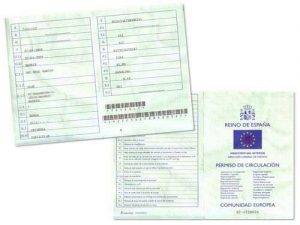Common Obstacles Encountered Throughout Foreign Car Registrations and How to Conquer Them
Navigating the intricacies of international lorry registrations can be a challenging task, laden with difficulties that differ substantially throughout territories. Concerns such as understanding neighborhood guidelines, conquering language barriers in important paperwork, and reconciling disparities in automobile requirements frequently develop. Moreover, recognizing tax effects and conformity with safety standards can additionally make complex the process. By analyzing effective strategies to resolve these challenges, people can much better position themselves for a smoother enrollment experience. The question remains: what specific actions can be required to reduce these common challenges?

Understanding Neighborhood Rules
Navigating the intricacies of international car registration starts with an extensive understanding of local regulations. Each nation has its particular laws and needs regulating the enrollment of automobiles, which can differ dramatically from one territory to another (Register a foreign Vehicle in Spain). It is critical for international vehicle proprietors to familiarize themselves with these laws to guarantee conformity and prevent potential penalties or legal issues

In addition, some territories mandate car inspections to establish compliance with neighborhood safety and exhausts standards. This could necessitate alterations to the car prior to it can be legally signed up. Engaging with regional authorities or talking to lawful experts can give clearness on these guidelines.
Language Barriers in Documents
Language obstacles position significant challenges when it concerns the paperwork required for foreign lorry registration. Lots of people experience troubles in understanding the particular needs outlined in regional laws, as these documents are commonly released in the official language of the host country. Misconceptions can bring about the submission of inaccurate or insufficient documentation, resulting in delays or denial of registration.
In addition, essential files, such as title actions, evidence of possession, and insurance policies, may not have readily available translations - Register a foreign Vehicle in Spain. This can produce complication for international lorry proprietors that are not familiar with the local terminology and legal jargon. As a result, navigating the registration process becomes troublesome, typically needing extra effort and time to make sure conformity
To minimize these concerns, it is suggested for international lorry proprietors to look for expert translation solutions or seek advice from regional professionals who can help in comprehending the requisite paperwork. Furthermore, government agencies might give multilingual sources or standards to help with the registration process. Proactively resolving language obstacles can enhance the registration experience, guaranteeing that all required documents are properly ready click resources and submitted in accordance with neighborhood guidelines.
Automobile Specification Discrepancies

Running into car requirements inconsistencies can develop significant difficulties for foreign car proprietors during the enrollment procedure. These discrepancies usually occur from distinctions in making requirements, dimension devices, and regulatory demands in between the vehicle's native land and the host nation. A car that satisfies safety and security and emissions standards in one country may not line up with the requirements needed for enrollment in another, leading to delays or outright rejections.
To conquer these difficulties, it is critical for international vehicle owners to conduct comprehensive research study prior to starting the enrollment process. This includes comprehending the certain demands established by the regional authorities, such as security requirements, discharges levels, and any type of required adjustments. Engaging with a professional service specializing in international lorry enrollment can additionally supply useful insights and support in navigating these discrepancies.
Documents plays a vital duty, so making sure that all technical specifications and modifications are properly mirrored in the documents can reduce issues. In addition, keeping open communication with local enrollment authorities click can supply clearness see this site on any possible inconsistencies, enabling timely resolution and effective registration of the vehicle.
Browsing Tax Needs
Recognizing the tax needs related to foreign lorry registration is important for proprietors wanting to follow local laws. Each territory has particular tax obligation commitments that need to be met prior to a car can be lawfully signed up. These may consist of import tasks, value-added tax obligations (VAT), and annual lorry taxes, which can differ considerably depending on the automobile's origin, worth, and specifications.
To navigate these tax obligation requirements properly, car proprietors should begin by looking into the particular tax obligations applicable in their area. Consulting with neighborhood tax authorities or a tax specialist with experience in international car enrollments can provide clarity on the procedure and potential obligations.
In addition, it is essential to preserve detailed documentation of the automobile's acquisition and any kind of payments made, as this will be needed for tax obligation calculations and potential audits. Owners must additionally know any due dates connected with tax obligation settlements to stay clear of penalties or delays in registration.
Evaluation and Compliance Issues
Consistently addressing inspection and compliance issues is vital for owners of international automobiles looking for to register them in a brand-new jurisdiction. Each region has unique policies concerning car security, discharges, and adjustments, which can position significant challenges for owners not familiar with neighborhood criteria. Recognizing these demands is important to prevent delays and added expenses.
One typical issue emerges when international cars do not meet the host territory's safety and security and discharges standards. Proprietors must proactively verify that their vehicles abide with regional regulations, which might include modifications or getting required documentation from suppliers. Furthermore, many territories require a thorough assessment by an authorized center, which can result in more issues if the vehicle falls short to meet specific criteria.
To browse these challenges, proprietors can speak with neighborhood car enrollment authorities or seek help from professionals knowledgeable about the enrollment process. Preparing all essential documentation ahead of time, including previous assessment records and proof of conformity, can streamline the registration procedure. Ultimately, extensive prep work and awareness of assessment needs can considerably improve the chance of a successful foreign automobile enrollment.
Conclusion
In summary, the procedure of international vehicle registration involves numerous obstacles, including comprehension of regional guidelines, language obstacles in documentation, discrepancies in car specs, navigating of tax obligation needs, and inspection and compliance problems. Attending to these difficulties demands attentive research, utilization of professional translation services, and assessment with regional authorities. Engaging specialized services can ensure adherence to safety and emissions standards, ultimately helping with a smoother registration process and compliance with all appropriate commitments.